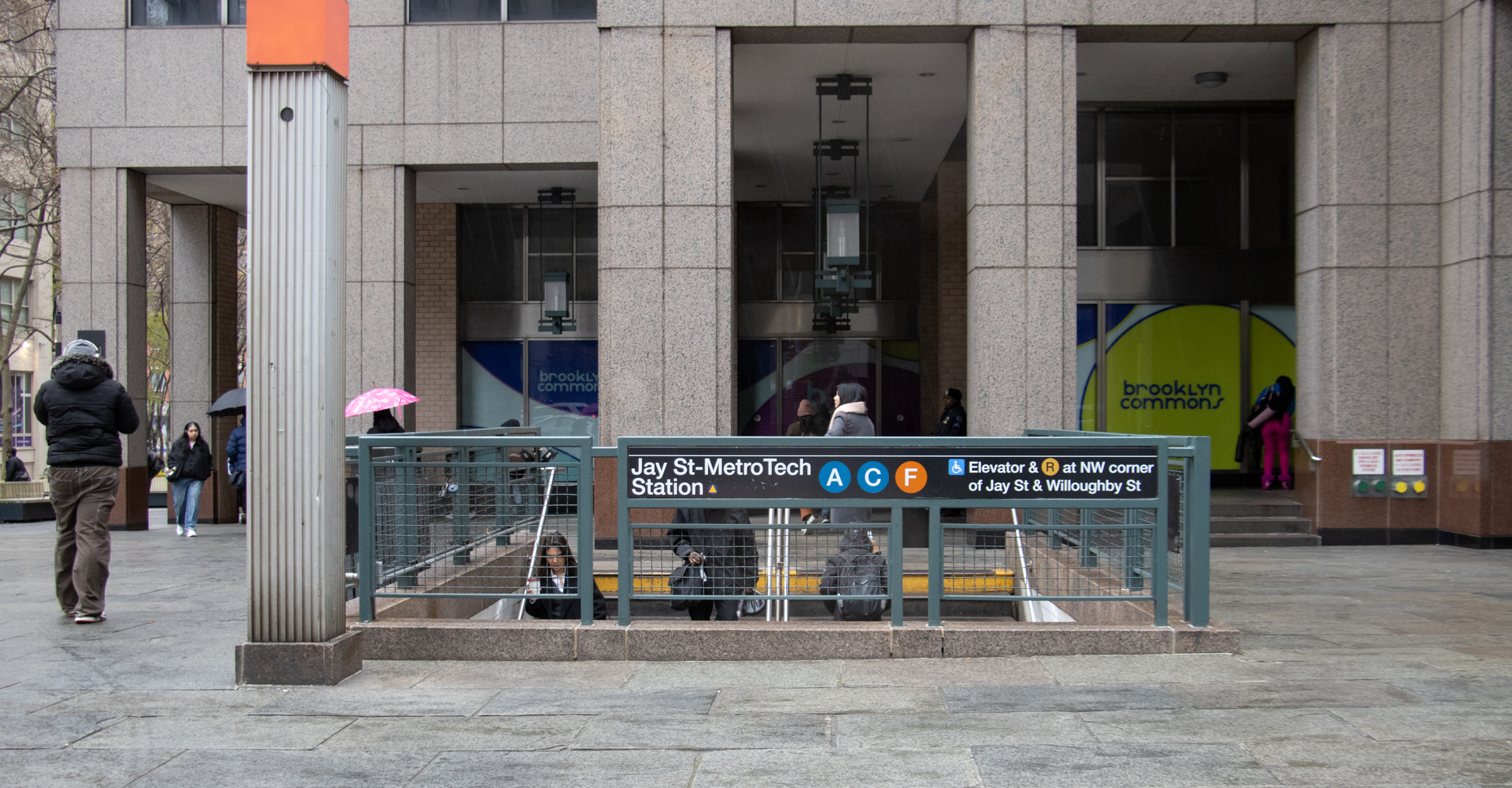Refinancing: How Sweet It Is
We’ve had a 6 percent 30-Year fixed mortgage since we bought our house in 2005. With rates at historic lows, we, like many people, started looking into refinancing earlier in the year, but had to put it on hold until we got tax extensions, and then returns, filed. When we spoke with the mortgage specialist…
We’ve had a 6 percent 30-Year fixed mortgage since we bought our house in 2005. With rates at historic lows, we, like many people, started looking into refinancing earlier in the year, but had to put it on hold until we got tax extensions, and then returns, filed. When we spoke with the mortgage specialist at Chase in February the conforming loan limit for a two-family house in Brooklyn was just south of $800,000. When we got on the phone yesterday morning we were pleased to learn that the conforming limit had recently been raised to $934,200; the single-family limit is $729,750. We were able to do a 90-day lock for a 1/4 point at 5 percent. Here’s where you have to start to question how low prices can really go: With rates where they are right now, you could, say, buy a $1.2 million house and lock in mortgage payments of $5,000 a month; assume you make $1,500 on your rental and you’re down to $3,500; throw in the tax breaks and you’re down to $2,500; add back in $1,000 a month for taxes and insurance and you’re back up to $3,500. $3,500 a month to own your own house in New York City and have, say, 2,400 square feet of living space for yourself (three out of four floors). The trickier part comes when you need to finance more than that $934,200. Have any readers gotten financing for significantly more than that recently? How did you structure it? We heard from Chase that HELOCs are quite hard to get right now?





Slopefarm, looking forward… with his current mortgage, Mr. B, has $924,452.31 in Interest Payments remaining over the next 26.5 years.
If he were to refi today @ 5% he would have to make a total of $882,335.24 in Interest Payments over the next 30 years; a savings of $42,117.07 in interest. So only looking forward(the past is the past), he would be better off re-fing today.
Now if he waits 12 months and rates are still 5%. His remaining balance would be $930K. On his old loan, he will have $868,108.01 in Interest Payments remaining. The new loan would have $867,785.70 in Interest Payments; a savings of $322.30 in interest. Looking 12 months into the future, the benefits are not as apparent. Rates would have to be lower than they are today to make it worthwhile. And not worth the stress.
If he waits 24 months and rates were still 5%. His remaining balance would be $913K. On his old loan, he would have $812,725.98 in Interest Payments remaining. The new loan would have $852,338.78 in Interest Payments; an Increase of $39,612.80 in interest.
So if he’s gonna so something, the sooner the better. Unless he knows for sure rates will be lower in the future.
http://mortgages.interest.com/content/calculators/recoup.asp
“Go into a Bank or a Mortgage Broker and like them show a rate schedule, add on the interest you have PAID and the remaining moths on the new mortgage”
Moths aside, the What is right. You really need to look at the amortization tables to make sense of this. Brokers and real estate lawyers should be able to help.
If Mr. B or whoever else is refinancing can pull out their old mortgage’s amortization table (ours was deep in the pile of closing docs), see where you are in the sched. of that loan, and then compare it to the amortization table of your brand-new refi, it should be plain and clear how much money you’ll save and how quickly the prior interest paid and second round of closing costs are offset. Rather than all this back and forth, comparing those two tables will tell you exactly whether you’ll be better off and by how much.
For Mr. B’s numbers, I don’t see how they wouldn’t work in his favor provided his family stays put for a while.
Dcorreale’s mid-term scenario does work if you’re strictly using all the monthly savings to pay down the principal, but like he/she said first off, that takes quite a bit of discipline. I know I can’t promise I’d do that for the life of our loan, so our calculations were done without plugging the savings back in.
If you follow the logic of the people talking about the $$ in interest costs to its logical conclusion, then a one year mortgage at 25% is a better deal than a 30 year mortgage at 5% since you pay fewer $$ to the bank. As many have said, what matters is the points, the closing costs and the time to recoup them in interest rate savings.
We are refinancing from a 3 year ARM to a 30 year fixed at 5% (conforming 2 family, no points). The payments will be lower because we are going from a 20 year final maturity to a 30 year final but we are fixing at a good rate and I can’t afford the interest rate risk anymore.
For a lot of people, managing monthly cash flow is what matters most, not optimizing your finance structure. Given what’s happened to my pay lately, monthly cash savings are what matter.
The What is our own Bill O’Reilly. The less he knows the more he shouts. If the poor dumb #$% wasn’t so obnoxious I’d feel sorry for him.
I’m saving nearly a grand a month on my refi. Yes I’ve extended the loan, but the largest part of the savings isn’t through extending the loan it’s through a reduced interest rate. Not sure I feel as stupid as l’il Whatty thinks I am.
And while the average length of stay is one thing, individual circumstance is really the issue.
Chill out, what, please. I’m not angry with you and I am not yelling at you. You do not need to scream in all caps to disagree with me. Yes, Mr. B has paid interest for 3.5 years. We all know that. That money is gone whether he refies or not. It has no bearing on which is the smarter move going forward. He is not taking cash out (actually, he is putting a tiny bit in) so it is not like he is starting from scratch refinancing the original borrowed principle. Your point may have some fiscal logic to it or it may not. If you are right, just put up some numbers and show us. For example, show us how the money paid over the last 3.5 years counts differently in the refi scenario than if he stays woth the original loan. It really is that simple. And if you don’t have an argument, just live with it. No need to scream.
“What the What ignores is that Mr. B has already paid down some principal in the first three and a half years of his loan”
How much principle??????
he new loan amount will be lower than his original amount, so although he’s restarting the clock, it’s for a smaller loan AND at a lower rate. When we refinanced our loan, we had already paid about $40K in principal.
Is that reflected in the offset?????
“So our payments to the first lender were not flushed down the toilet; we are now carrying $40K less in principal over the life of the loan, which will save us a huge amount in interest. And we can pre-pay without penalty, which means we can pay down the loan faster than the 30 year term if we decide to. For now our carrying costs are much more affordable”
Why not “pay down” from the current mortgage??????
“And no matter what the math indicates, The What needs to take a deep breath and calm down. ”
So now we “Throw the math” out of the window???
“What the what is really ignoring is that it doesn’t matter what he already paid. He got to live in the house for those 3 years What, do you realize that? he borrowed $1,000,000 and had to pay interest on it. That is how it works, its not like he gave the money away for the right to pay less interest later”
No he rented his house for three years. There was little AMORTIZATION on the mortgage!
Here suck down this concept: Amortization
http://en.wikipedia.org/wiki/Amortization
Amortization or amortisation is the process of increasing, or accounting for, an amount over a period of time. The word comes from Middle English amortisen to kill, alienate in mortmain, from Anglo-French amorteser, alteration of amortir, from Vulgar Latin admortire to kill, from Latin ad- + mort-, mors death.
The goal is to pay off the mortgage not increase the amount of PAYMENTS!
Lord have mercy you are stupid and Brownstoner I will be right here to see of you carry out that 15 year commitment…
The What
Someday this war is gonna end…
Excellent use of selective quoting there WHAT –
You are either a complete moron or such an ego maniac that you cant admit that you are mostly wrong.
I vote for both.
What the what is really ignoring is that it doesn’t matter what he already paid. He got to live in the house for those 3 years What, do you realize that? he borrowed $1,000,000 and had to pay interest on it. That is how it works, its not like he gave the money away for the right to pay less interest later
What the What ignores is that Mr. B has already paid down some principal in the first three and a half years of his loan. The new loan amount will be lower than his original amount, so although he’s restarting the clock, it’s for a smaller loan AND at a lower rate. When we refinanced our loan, we had already paid about $40K in principal. So our payments to the first lender were not flushed down the toilet; we are now carrying $40K less in principal over the life of the loan, which will save us a huge amount in interest. And we can pre-pay without penalty, which means we can pay down the loan faster than the 30 year term if we decide to. For now our carrying costs are much more affordable
And no matter what the math indicates, The What needs to take a deep breath and calm down. If these comments are going to create useful dialogue, they should be about bringing more light, and less heat. The What is all about heating things up without being illuminating.